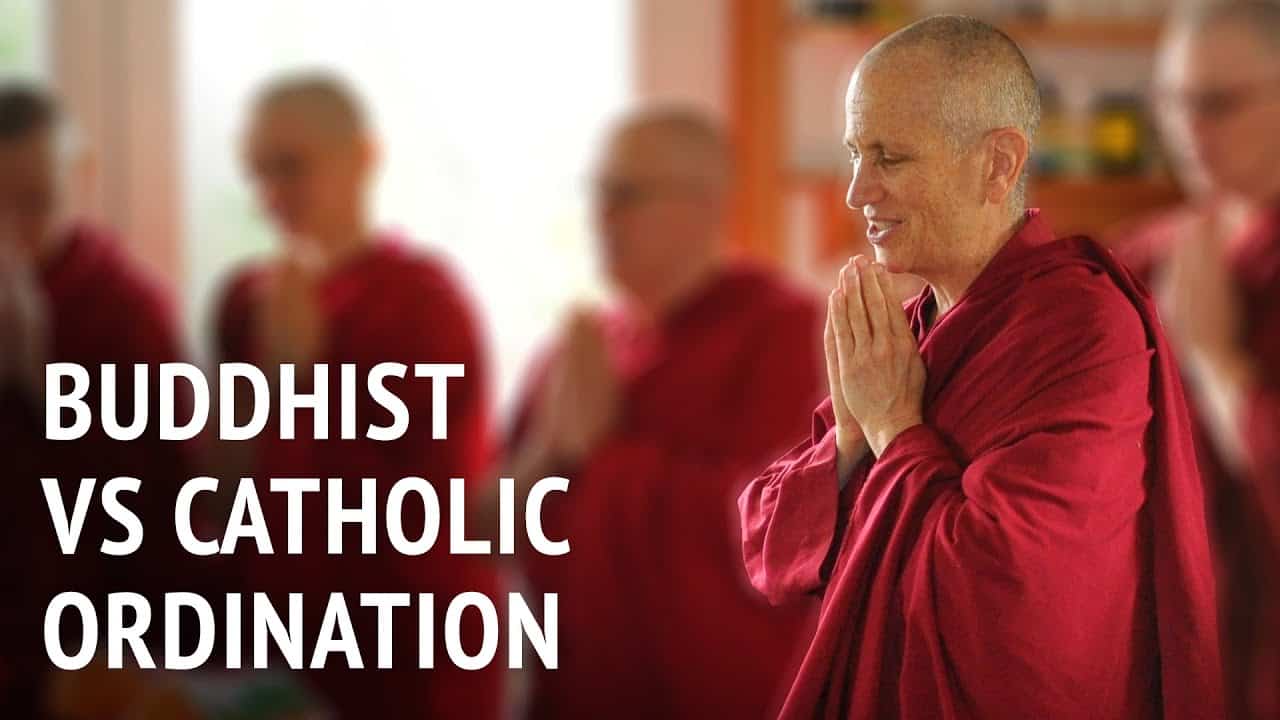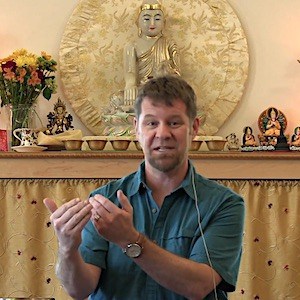Gender equality and the future of Buddhism
In these interviews, recorded by a team from studybuddhism.com, Venerable Thubten Chodron answers questions about her life and what it means to be a Buddhist in the 21st century.
Is gender equality important for Buddhism to take root and flourish in the West? It’s extremely important.
First of all, it is one of contemporary Western society’s important values. And it fits in women’s rights, human rights, respect for all sentient beings, not just some of them. And so it’s quite important, I think.
Not only women want gender equality in the West, but the men do too. There are men who come here, and they want to have more women teachers. And many women want to have more women teachers, not only because women teachers serve as a role model, but because when they have certain questions it’s easier for them to discuss with women than with men. And some men too find it easier to discuss certain personal things with women, rather than with other men.
The Buddha was very specific: he was working for the enlightenment of every sentient being. So that includes not only males, but females! He didn’t say, “I’m only working for half of sentient beings,” he said, “all sentient beings.” I think really to fulfill the Buddha’s purpose and vision, gender equality is very important.
Like I said, it’s not something that is necessarily integrated into every Dharma center and monastery in the West, because Buddhism in Asia has a different take on gender equality. And even among the different Buddhist traditions, they have different perspectives on it. But I do know that in the West, it’s quite important for everybody.
Venerable Thubten Chodron
Venerable Chodron emphasizes the practical application of Buddha’s teachings in our daily lives and is especially skilled at explaining them in ways easily understood and practiced by Westerners. She is well known for her warm, humorous, and lucid teachings. She was ordained as a Buddhist nun in 1977 by Kyabje Ling Rinpoche in Dharamsala, India, and in 1986 she received bhikshuni (full) ordination in Taiwan. Read her full bio.


